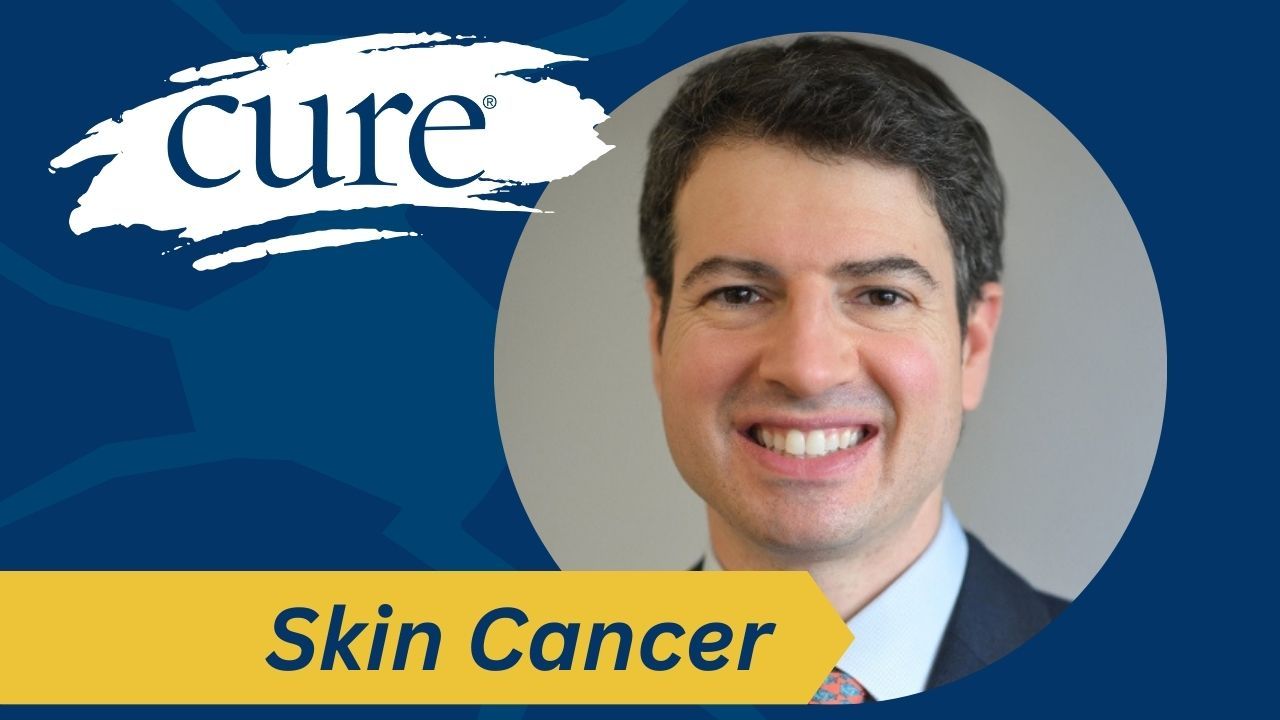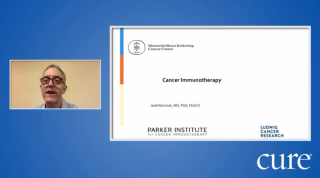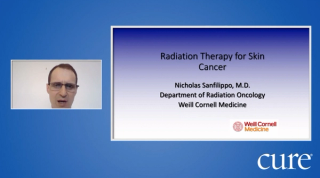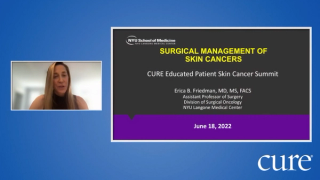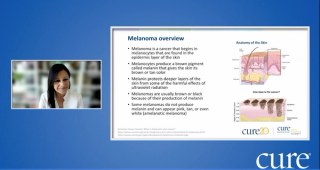
Skin Cancer
Latest News
Video Series

Latest Videos
Podcasts
More News

In patients with high-risk melanoma, intismeran autogene and Keytruda reduced the risk of recurrence or death compared to Keytruda alone.

This guide is designed to provide you with a clear medical foundation so you can engage in informed, collaborative discussions with your oncology team.

Subgroup analysis of the phase 3 FOCUS study of patients with uveal melanoma has been announced.

A woman shares how vision loss led to her cancer diagnosis and how lifestyle changes, support and community helped her regain control after her cancer had spread.

Basal cell carcinoma, or BCC, is the most common form of skin cancer globally, but it is also highly curable.

In October 2025, the FDA granted approval to multiple new cancer therapies and supportive care options, covering treatments across the oncologic landscape.
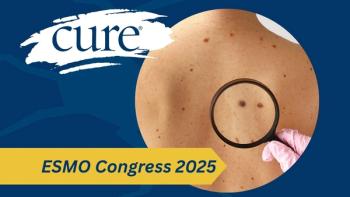
The cancer vaccine IO102-IO103 plus Keytruda was associated with a clinically relevant improvement in median progression-free survival.

Postsurgical Libtayo and placebo showed similar rates of second primary tumors in high-risk CSCC

Adjuvant Opdivo significantly extended relapse-free survival in patients with resected stage advanced melanoma.

CURE spoke with Betsy Hamlin, who was treated with Keytruda Qlex in a clinical trial after being diagnosed with melanoma.

CURE spoke with melanoma survivor Betsy Hamlin about her experience with subcutaneous Keytruda in a clinical trial.

This guide provides a supportive overview of stage 2 melanoma, covering diagnosis, treatment options, and key questions for your medical team.

Dr. Vishal Patel explains what Libtayo’s FDA approval means for patients with high-risk cutaneous squamous cell carcinoma.

The FDA has approved Libtayo for the postsurgical treatment of adults with cutaneous squamous cell carcinoma.

Non-melanoma skin cancer is a common and highly treatable type of cancer that originates in the top layer of the skin, like basal cell carcinoma.

For me, standing up to cancer means honoring my wife’s melanoma journey by raising awareness, supporting early detection and research.

Stage 1 melanoma is treatable with surgery, and when combined with early detection, proper care and regular follow-ups, it offers a favorable outlook.

DecisionDx-SCC may help doctors more accurately guide treatment in high-risk cutaneous squamous cell carcinoma, the second most common form of skin cancer.

Data show that the cancer vaccine Cylembio plus Keytruda demonstrated clinical improvement in progression-free survival in unresectable/advanced melanoma.

Adding SCIB1 or iSCIB1+ to standard treatments helped more patients with advanced melanoma respond and live longer without extra side effects.

Patients with skin cancer who were fed a high-fiber diet showed better response rates to treatment and longer event-free survival, according to data from the DIET trial.

Dr. Ma discussed key findings that have been shared so far this year on the topic of evolving treatment strategies for patients with high-risk skin cancer.

Dr. Vincent Ma discussed the most recent and notable treatment updates for patients with high-risk and advanced melanoma.

A real-world study showed a 49% response rate with Amtagvi in patients with advanced melanoma, supporting earlier use after immunotherapy.

TIL therapy is on the rise in melanoma, with potential for other tumor types.



